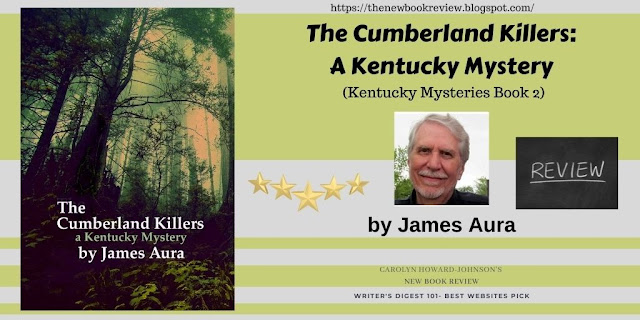Last week I did a Zoom presentation to the Book Publicists of Southern California (BPSC). It was a little like speed dating (10 minutes per presenter!), so I asked if I could put a little extra help on some of the topics we suggested in a blog post and share it with the world. Generous souls, these guys are! Thanks to Irwin Zucker, founder of the organization, and Editor Robin Quinn who is an organizer extraordinaire. And Bruce Braunstein, President. Feel free to contribute ideas in the comments section or leave messages for BPSC.
Don’t Miss Out on Your Big Time Professional Reviews
Your Reviews, Your Path to Success
By Carolyn Howard-Johnson
Excerpted and Adapted from The Frugal Book Promoter, Edition III
Highlighted for quick reminders of details mentions in my 10-minute presentation for
Irwin Zucker’s Book Publicists of Southern California (BPSC)
... newspapers and magazines are trimming back their review coverage ~ Christopher Dreyer for Salon
Many authors think it’s worth it to learn all this marketing business—especially the writing of query letters—just to get reviews even though they’re scared spitless of what those reviews might say. Byron once asked his publisher to “send me no more reviews of any kind.” He thought Keats had been killed by one bad review (which, we know in retrospect, was not true).
Some writers—particularly those who have made it to bestseller lists—believe that reviews were responsible for their success; many others have been successful without them or in spite of them.
What can’t be argued is that librarians and bookstore buyers peruse The Library Journal and other major review journals, book review sections, as well as media material the major publishers send to them. Most authors would like to see their books in libraries and on bookstore shelves and good reviews are the fast lanes to those shelves—sometimes the only lanes.
You, as a promotion-minded author, would like to have reviews. They are my favorite form of promotion for a host of reasons not least of which is how many ways they can be used for your entire book marketing campaign. See How to Get Great Book Reviews Frugally and Ethically (bit.ly/GreatBkReviews) for everything you need to get them and use them effectively!
Finding reviewers isn’t easy and your publisher may not help much. No offense, publishers. I know many of you do a terrific job. Let’s face it, you can use help, and you don’t need to deal with disappointed (irate?) authors. And, authors! We are ultimately responsible for our own careers. Sometimes when we wait to take responsibility, it is too late.
One of my writing critique partners was published by a fine small press. When she learned her publisher had not sent advance review copies of her literary novel to the most prestigious review journals before their strict sixteen-week deadline, she was naturally upset. They explained it was a snafu. She and I used some of the alternative review-getting methods in this chapter. But mostly (because she had me to nag her), she moved on to other marketing strategies to make up for the neglect.
Most large publishers send advance review copies. Still, these days they are relying more on bloggers and review websites because they understand that grassroots publicity—reviews or otherwise—produces a very green crop.
Ask potential publishers about their marketing process before you sign with them, but—even if you feel assured after having that conversation—it’s best to assume you are on your own. We’ll discuss how (and where!) to get reviews next, beginning with how to get reviews from the biggest and best.
-∞-
BIG-JOURNAL REVIEWS may still be available to you. Books that have been ignored by The New York Timeshave become bestsellers; others that received rave reviews never made it to that same publication’s bestseller list. It is all a game. We can choose not to play, but if we don’t play, we’ll never know if we could have won, much less experience, the thrill of winning.
To win, you need to know the rules—especially the be-on-time rule—and you need to be very, very lucky.
§ When you sign your contract with a publisher, be sure that they send advance review copies to major journals before their twelve-to-sixteen-week deadline.
§ Big influencers in the publishing world pay more attention to a query or a review copy that comes directly from a publisher than one from an author or an independent publicist.
§ If you are unable to get your publisher to accommodate review journals’ needs, you can:
o Buy extra review copies from your publisher to send to the reviewers. Ask for the list of review journals they submit to and expand on it by sending copies to others you think might be interested. Find my lists at howtodoitfrugally.com/reviewers.htm.
o If your publisher will not have your book ready for release before that sixteen-week cutoff date, self-publish your own advance review or readers’ copies (also called ARCs) and distribute them yourself. You learn how to do that in later in this excerpt. Most publishers own the rights to your book so you must ask their permission to do this. How they supply review copies and what they charge you for them is something else you should discuss with them before signing a contract.
Caveat: Distribute your own ARCs only if you are willing to risk the expense for limited results, and to take the pains to do it according to the firm and fast industry rules discussed in this chapter.
Making your own ARC or galley takes tons of planning, but you can do it.
Few use the term “galley” since print-on-demand has made publishing so quick and easy, but it is important you know this word for old-fashioned bound manuscripts because you will occasionally see it used to describe digitally printed review copies. Many use the term ARC—though no one seems to agree on whether the acronym stands for “Advanced Review Copy” or “Advanced Reader Copy.” The word “ARC” seems to keep everyone in the industry using the same vocabulary to communicate.
If you are self-published, start the galley/ARC process by fudging with the release date of your book. If not, ask your publisher to list the official release date about twenty weeks to six months from the day your book is set to first roll off the press.
Delayed release dates are an industry standard. A book’s delayed date is the release date. It is the one you or your publisher say it is and the one you use in your media releases. It isn’t a fake date, so don’t feel guilty. I know you won’t want to wait, but that lead time will do the same thing for indie authors and publishers it does for big publishers. It gives you time to get a professional publicity campaign going including the intricate review process.
You arrange to buy books from your publisher or produce your own ARCs keeping copyright laws in mind. If you produce your own, you must reformat your manuscript in your own computer. It’s obviously easier if your publisher provides ARCs to you at a favorable price. They will benefit from your efforts.
If you make your own ARCs, print them using a printer of your choice or a subsidy press (a publisher who charges you for their services). Plain vanilla (generic) covers are just fine for ARCs if they are clearly marked “Unedited Review Copy.” You can also stamp or label a few of your regular run books with a violation notice, “For Review Purposes Only.” Sometimes reviewers expressly ask that their review copies not be “defaced.” In that case put your violation notice on a sell sheet. (You will find information on sell sheets in either the hard cover, paper, or e-book at Modern History Press using the index to find all references easily.)
I like to use Amazon.com’s KDP to print ARCs. They are especially cost efficient if you pay only for services that you can afford or that save you learning-curve time that you don’t want to give over to the ARC process. You can upload your review copy free and pay two to five dollars per black and white copy (depending on the size of your book) not including shipping, and you may order any quantity you need, even just one. Many self-publishing platforms' profit margins are built into that price structure, so you are not cheating them by not utilizing services like formatting, interior design, etc. You may need to use them or want to use them if frugality is not an issue for you.
Many authors use Lulu, Ingram, or Lightning to print. Each has its own benefits and drawbacks. I know some who have used local printers, but they usually require a minimum print run which is usually too large for a run of ARCs —or full runs for self-publishing or first books, for that matter.
Your review copies benefit from having your book’s essential information printed on the first page, inside the front cover, on a label placed inside the front cover or as an insert, often called a sell sheet. Include:
§ Official release date—the one you and your publisher have decided on
§ Title
§ Author
§ Illustrator when applicable
§ Name of your cover designer if you wish
§ ISBN 13 and ASIN when applicable
§ Number of pages.
§ Retail price (the price a customer in a bookstore pays for your book) in both the US and Canada.
§ Trim size (the size of the finished, final copy of your book)
§ Define as hardcover, mass market paperback, trade paperback, or other specification
§ Number of illustrations and/or photographs
§ Publisher’s name and contact information—that could be you, the name of your own publishing company if you are self-publishing your book, or the name of your publisher
§ Distributor’s name and contact information
§ Agent’s name and contact information
§ Publicist’s name and contact information
§ A “Review Copy Only” violation notice if you haven’t otherwise used one
Caveat: Did I mention the twelve-to-sixteen week pre-release requirement of most top review journals? If it’s too late for that, there are many other good ones like Midwest Book Review that welcome review queries after the release date. Find a list of some of those in my How to Get Great Book Reviews Frugally and Ethically (bit.ly/GreatBkReviews) along with everything else you need to make your review campaign your favorite, most successful promotion.
You’re now ready to send your ARCs out with your releases or media kits according to each review journal’s guidelines.
The big journals that require a fourteen-to-sixteen-week lead are:
§ Booklist, American Library Assoc., ala.org/booklist.
§ Entertainment Weekly Magazine (now Entertainment published monthly)EW.com.
§ Kirkus Reviews, kirkusreviews.com. (
Note: Read up on the disadvantages of paying for reviews in, How to Get Great Book Reviews Frugally and Ethically: The ins and outs of using free reviews to build and sustain a writing career, even well-respected journals like Kirkus.
§ Library Journal, libraryjournal.com. The New York Times Book Review, nytimes.com. Please email your letter to the editor to books@nytimes.com
§ Los Angeles Times Book Review, latimes.com.
§ Chicago Tribune Books, chicagotribune.com.
§ Independent Book Review, https://independentbookreview.com/get-your-book-reviewed/
§ Publishers Weekly, publishersweekly.com. Also sign for their newsletter.
§ Amazon.com, Editorial, 520 Pike St., Suite 1800, Seattle, WA 98101.
§ The book and entertainment section of your metropolitan newspaper.
§ Consider book review services like Simpli.com
To find Media (trade journals, etc) associated with the topic of your book, use Cision.com, formerly Bacon’s Directories. Check with your librarian for access.
Caveat: Many of the same journals who appear to disregard or say they do not consider self- or POD-published books for review occasionally do review books published independently. Those privileged authors feel it was worth sending an ARC so professionally wrought the gatekeepers couldn’t ascertain that it did not come from the most respected publisher or publicist and worth it to have built a sturdy platform while they were writing their book (and before!).

The following review spots are amenable to reviewing alternative forms of publishing though no reviewer, review journal, or site guarantees review for all submissions:
§ Independent Publisher, independentpublisher.com.
§ Midwest Book Review, midwestbookreview.com
§ Foreword Magazine, forewordmagazine.com
§ Lots of online review sites like Myshelf.com, CompulsiveReader.com, BookPleasures.com
§ My The New Book Review. This URL http://bit.ly/FreeAlternativeBookReview takes you to my blog where you can extend the exposure of reviews you already have with permission from the reviewer.
§ Book clubs for general readers and clubs for niche markets (think Oprah’s book club associated with Holland America CruiseLine.
§ Find ideas at literarymarketplace.com.
Caveat: When you submit galleys or self-published ARCs, some journals ask you to send a final copy of your book when it is finished as proof that it was released.
Warning: Do not pay for a review. It is not considered ethical by journalism standards and your expensive review will not impress gatekeepers like librarians and editors. Trust me. They do know the difference. For more information on this topic, read my How to Get Great Book Reviews Frugally and Ethically (bit.ly/GreatBkReview).
The lists I’ve given you are compiled for the frugal author. They can be expanded a thousand-fold if your budget allows. Work with your publisher. Do not duplicate her efforts.
Check for changes in a journal’s contact information and submission guidelines.
Hint: Send a book or ARC with your query only when submission guidelines ask for it. For all others, wait to send your ARC until the reviewer indicates an interest in your book based on the query letter you send to them,
-∞-
ALTERNATIVES TO MAJOR REVIEW JOURNALS do exist. And there are ways to approach them. If you have a copy of any edition of The Frugal Book Promoter, use your index to find entries on terms like “back door review methods,” “ARCs,” and just plain “reviews.” One of my greatest book-selling technique was persisting with queries for my first book (a novel) to The Library Journal. Acquisition librarians read it and they buy lots of books!

Carolyn Howard-Johnson brings her experience as a publicist, journalist, marketer, editor, and retailer to the advice she gives in her HowToDoItFrugally Series of books for writers and the many classes she taught for nearly a decade as instructor for UCLA Extension’s world-renown Writers’ Program including a class on editing for self-publishers. The books in her HowToDoItFrugally Series of books for writers have won multiple awards. That series includes The Frugal Book Promoter and The Frugal Editor which won awards from USA Book News, Readers’ Views Literary Award, the marketing award from Next Generation Indie Books and others including the coveted Irwin award. How to Get Great Book Reviews Frugally and Ethically launched to rave reviews from Karen Cioffi, The Article Writing Doctor, http://articlewritingdoctor.com. She says:
“I’m an author, content writer, and online marketing instructor. Reading Carolyn Howard-Johnson’s The Frugal Editor has given me lots and lots of tips and reminders on how to write right, whether I’m writing fiction, nonfiction, blogging, or marketing. It’s a writing tool I’ll refer to over and
over again.”
Howard-Johnson is the recipient of the California Legislature’s Woman of the Year in Arts and Entertainment Award, and her community’s Character and Ethics award for her work promoting tolerance with her writing. She was also named to Pasadena Weekly’s list of “Fourteen San Gabriel Valley women who make life happen” and was given her community’s Diamond Award for Achievement in the Arts.
The author loves to travel. She has visited nearly 100 countries and has studied writing at Cambridge University in the United Kingdom; Herzen University in St. Petersburg, Russia; and Charles University, Prague. She has been in love with words and syntax since she took an advanced grammar class from Miss Jones (No kidding!) in high school and, curiously followed up with grammar from a professor who was of Russian royalty at USC and another who in Heiroglyphics from a professor who was made a Duke for his service during the great flood of Florence in 1966. Carolyn’s website is www.howtodoitfrugally.com.













